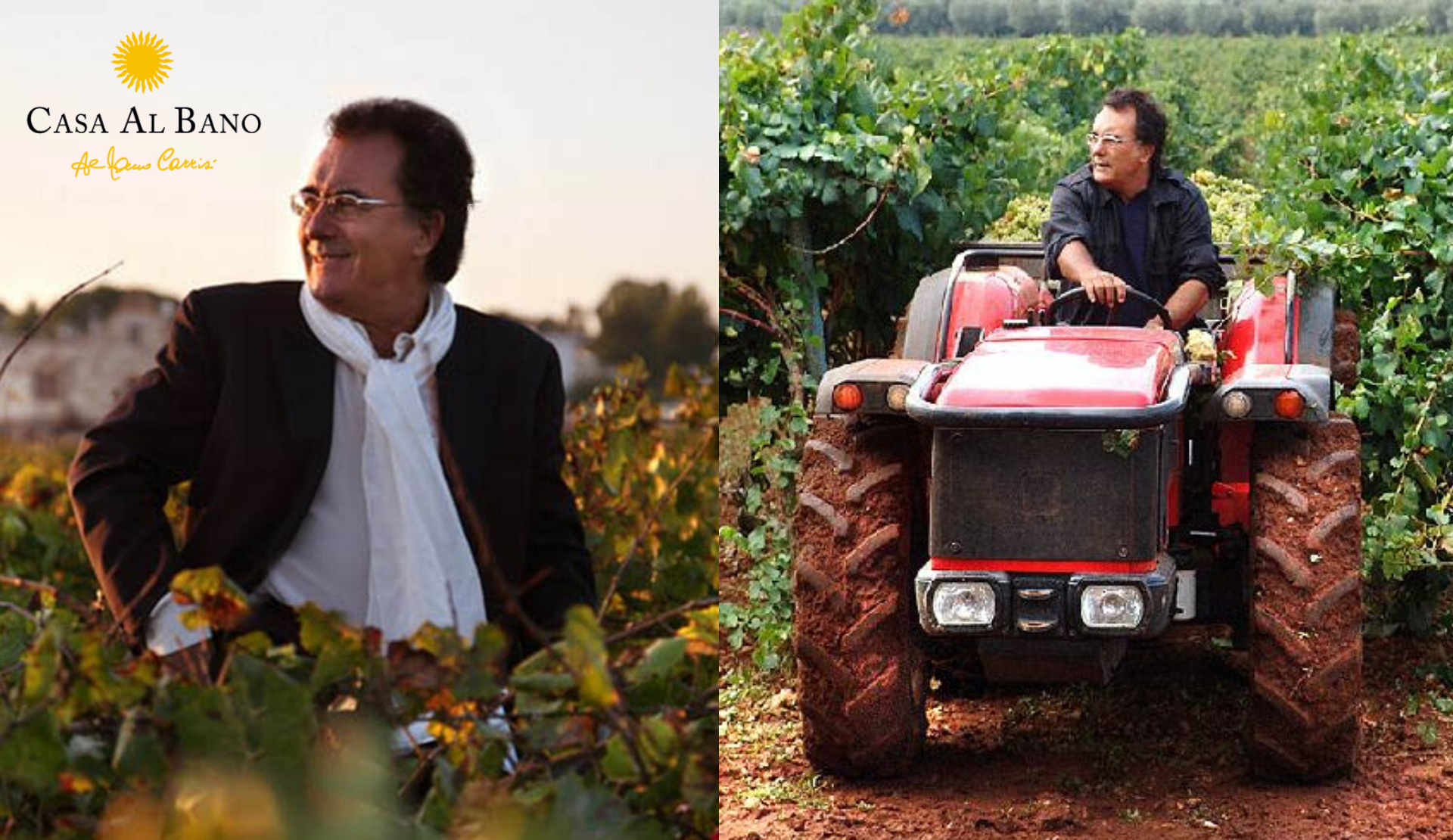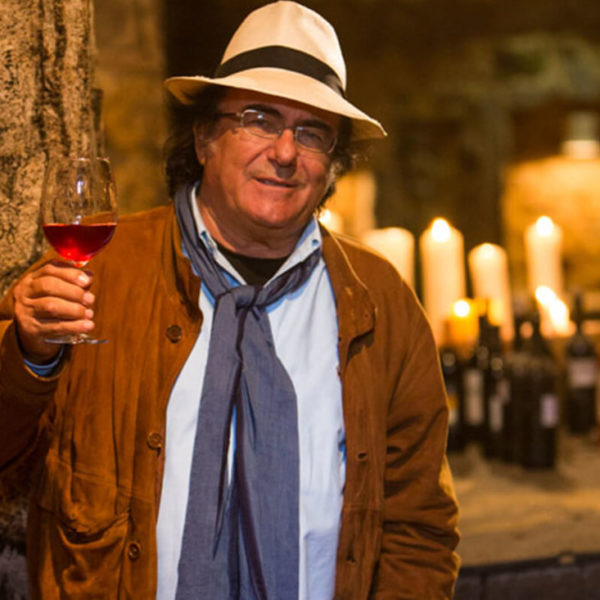

Chef Winemaker & Famous Singer - Albano Carrisi
« I will leave. I will become a singer and when I return, I will build a cellar to dedicate it to you. " Al Bano left from the small town of Cellino San Marco , located in the heart of Salento, and from a situation of poverty, pronouncing this phrase to his father, Don Carmelo. The promise kept her. Thus were born the cellars of Al Bano Carrisi, from a line of white wines called precisely "Don Carmelo". Today the cellars produce 10 lines of wine, sparkling grappa, and excellent olive oil. The wines vary between red, rosé and white, obtained from vineyards between 40 and 75 years old which include Primitivo, Negroamaro, Salice Salentino, Chardonnay and Aleatico



Rich History
« When I was a child, Don Carmelo, my father, took me to the vineyard and taught me to free it from weeds. "If you give to the earth, the earth gives you", he told me, so I understood that even before the wine, a sip of wisdom came from the vineyard. I dedicated this wine to "My Old Sage" which helps me to rediscover the warmth of affections and the color of the years. »
The Roots
In the ancient Masseria of Curti Petrizzi , viticulture is a tradition that has been handed down for centuries. Around a wide band of Mediterranean scrub, since the eighteenth century small vineyards were carefully cultivated to create a delicious “nectar” not only for Count Balzamo, owner of these lands, but also for those who – in the mid-nineteenth century after the fall of the Kingdom of the Two Sicilies – they were called “deserters” and which went down in history as “brigands” after the unification of Italy.
A great-great-grandfather of Al Bano Carrisi , exactly his great-grandfather, worked as a charcoal burner in the adjacent wood. He was the only one, according to the dusty family documents, to have direct contact with the “brigands”.


History Books
In fact, the eleven people who hid in the Cellino San Marco countryside turned to him for supplies and the inevitable and delicious wine of these districts. The elderly charcoal worker, fearing the “deserters”, could not escape his job as a “courier”. Thus, he never made those men miss the excellent glass of “miero”, as pure wine is still used in dialect (from the Latin “merum”).
The history books tell that in the last days of July 1861, those “brigands” were discovered by the captain Luigi Lupinacci who put an end to their desperate adventures.
Men and history pass through a land which today, owned by the Carrisis, has been completely transformed in the absolute respect of a luxuriant nature as in the last century.
Of those years, however, the tradition of a great wine remains : the same of the last century that today, thanks to the cellars of the singer Al Bano Carrisi, arrives as genuine as then, on tables all over the world.
The Land
The characteristics of the soil, the rigorous local tradition and the vast stretches of vineyards cultivated in rows guarantee the top quality of the grapes. These are monitored at the origin to ensure that the product is picked and processed in the precise moment of its’ ripening. Wise and expert hands follow each phase of the production, from the picking of selected grapes to the aging in barrels made of oak wood. Al Bano is very proud of this process, because a good wine has to be looked after with love, passion and respect for the laws of nature. This is why the Cantine Al Bano Carrisi, although it has adopted the new technological requirements of wine-making, are the symbol and tangible proof of a wine-civilization that has been handed down from generations. For the sake of a genuineness that encompasses the historical and cultural roots of a way of life.
Puglia is a land of very ancient wine traditions. The Apulian planes have been a sanctuary for grapevines and olive trees since the times of the Phoenicians and Ancient Greeks. Homer himself refers to this region as a place of “Eternal Spring” and it was these particular climatic conditions to favor an abundance and variety of refined wines. The farming of the grapevine was already performed since the Greek colonization in the VIII century B.C. In ancient times, Puglia was the wine cellar of the Roman Empire with its production of wine and olive oil, whose very refined qualities are still appreciated today




